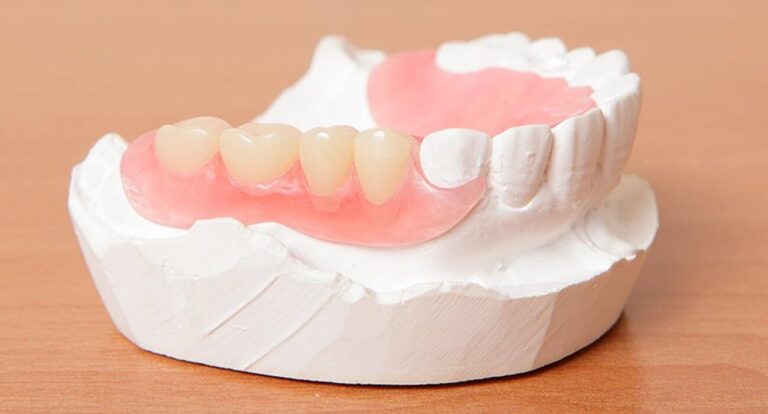Are you familiar with the saying “A smile is the prettiest thing you can wear”? But what happens when a missing tooth dims that beautiful smile? Missing teeth not only impact your appearance but also affect your oral health in more ways than one. Let’s dive into the common causes of missing teeth and discover how to prevent this dental dilemma for good!
Dental hygiene and its role in preventing tooth loss
Maintaining good dental hygiene is crucial in preventing tooth loss and promoting overall oral health. Brushing your teeth at least twice a day, flossing daily, and using mouthwash can help remove plaque buildup that leads to gum disease and decay.
Proper dental care also includes regular visits to the dentist for professional cleanings and check-ups. Dentists can detect early signs of issues like cavities or gum disease before they escalate into more serious problems.
In addition to home care and professional cleanings, a healthy diet plays a significant role in maintaining strong teeth and gums. Limiting sugary foods and drinks, as well as consuming calcium-rich foods like dairy products can help prevent tooth decay.
By making dental hygiene a priority in your daily routine, you can significantly reduce the risk of tooth loss and ensure a bright smile for years to come.
Common causes of missing teeth
Missing teeth can be caused by a variety of factors, with poor oral hygiene ranking high on the list. Neglecting regular brushing and flossing can lead to plaque buildup, cavities, and ultimately tooth loss. Gum disease is another common culprit for missing teeth – when left untreated, it can progress to periodontitis and cause damage to the gums and supporting bone structure.
Tooth decay is a major contributor to missing teeth as well. Consuming sugary foods and drinks without proper oral care can erode enamel over time, leading to decay and potential tooth loss. Accidents or injuries that impact the mouth can also result in missing teeth suddenly.
Genetics play a role too; some people may be more predisposed to dental issues that increase their risk of losing teeth. Regular dental check-ups are essential in catching problems early before they escalate into tooth loss scenarios.
Tips for maintaining good oral hygiene to prevent tooth loss
Maintaining good oral hygiene is crucial in preventing tooth loss. Brushing your teeth at least twice a day with fluoride toothpaste helps remove plaque and bacteria that can lead to decay and gum disease. Don’t forget to floss daily to clean between teeth where your brush can’t reach.
Using mouthwash can also help kill bacteria and freshen breath, contributing to overall oral health. Eating a balanced diet rich in fruits, vegetables, and calcium-rich foods strengthens teeth and gums. Limit sugary snacks and drinks that can erode enamel over time.
Regular dental check-ups are essential for early detection of any potential issues before they escalate into bigger problems. Your dentist may recommend treatments or interventions to maintain your oral health. By following these simple tips consistently, you can significantly reduce the risk of missing teeth in the future.
Importance of regular dental check-ups and early detection of potential issues
Regular dental check-ups play a crucial role in maintaining good oral health. These routine visits allow dentists to detect any potential issues early on, preventing them from developing into more serious problems. During these appointments, your dentist can identify signs of gum disease, tooth decay, or other conditions that may lead to missing teeth if left untreated.
Early detection is key when it comes to preserving your natural teeth and avoiding the need for extensive treatments like implants or bridges. By catching issues in their initial stages, you can address them proactively and prevent further damage to your smile. Additionally, regular check-ups help monitor the overall health of your teeth and gums, ensuring that any concerns are addressed promptly.
Don’t underestimate the importance of preventive care – scheduling biannual dental exams can save you time, money, and discomfort in the long run. Remember that prevention is always better than cure when it comes to maintaining a healthy smile!
Treatment options for missing teeth (implants, bridges, dentures)
When it comes to treating missing teeth, there are several options available depending on the individual’s needs and preferences. One common solution is dental implants, which are artificial tooth roots that provide a strong foundation for replacement teeth. Implants look and function like natural teeth, offering a long-term solution for those with missing teeth.
Another option is dental bridges, which consist of one or more artificial teeth anchored in place by crowns on either side of the gap. Bridges can restore your smile and ability to chew properly while also preventing shifting of remaining teeth.
For individuals who prefer a removable option, dentures may be recommended. Dentures come in partial or full forms and can improve both aesthetics and functionality for those missing multiple teeth.
Consulting with a dentist will help determine the most suitable treatment plan based on factors such as oral health, budget, and personal preference.
Conclusion
Maintaining good oral hygiene practices and being proactive about dental care can help prevent the common causes of missing teeth. By brushing and flossing regularly, visiting your dentist for check-ups, and addressing any potential issues early on, you can reduce the risk of tooth loss. Remember that prevention is key when it comes to preserving your smile and overall oral health. If you do experience missing teeth, there are various treatment options available such as implants, bridges, or dentures to restore function and aesthetics. Don’t wait until it’s too late – take charge of your dental health today to protect your beautiful smile for years to come!


